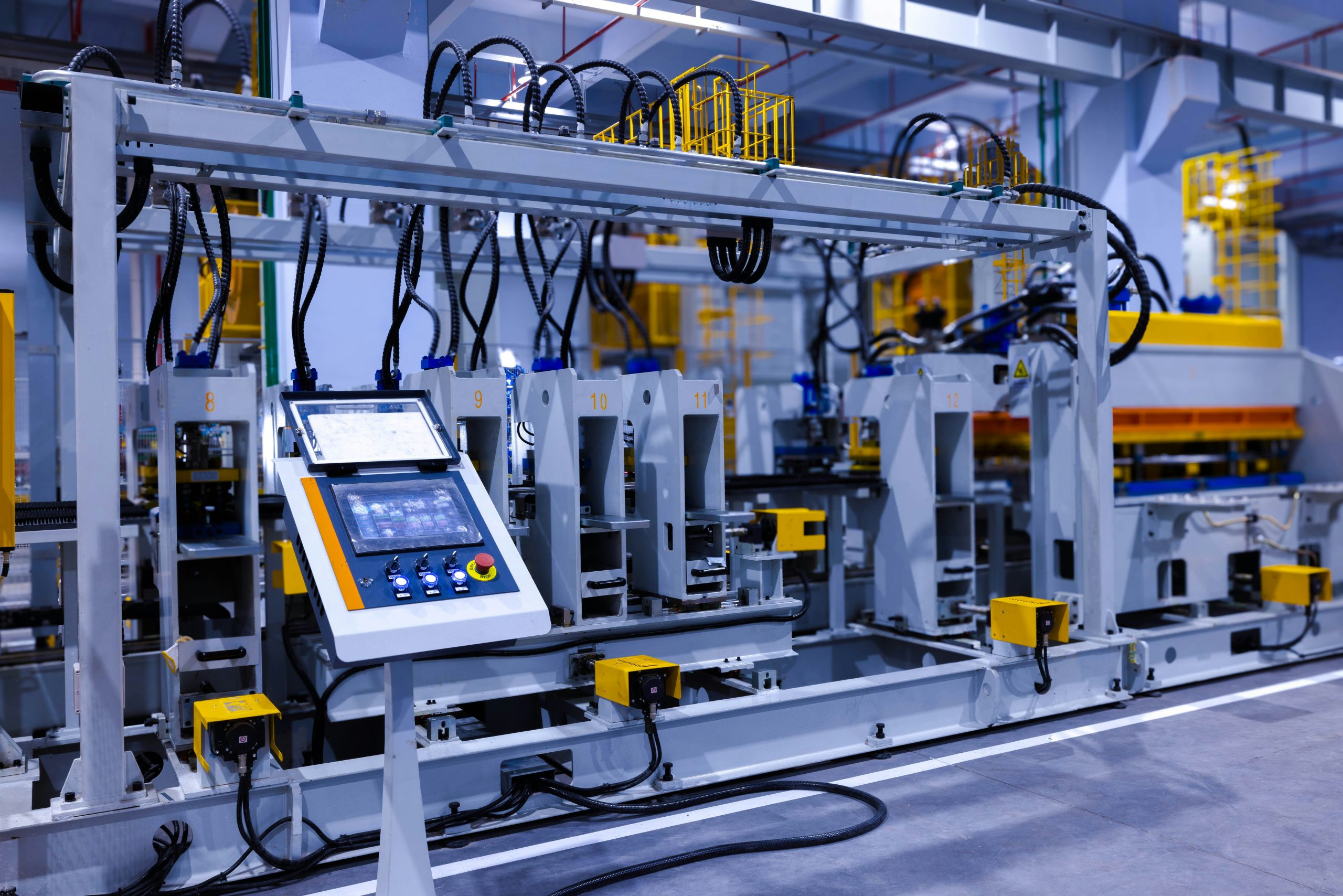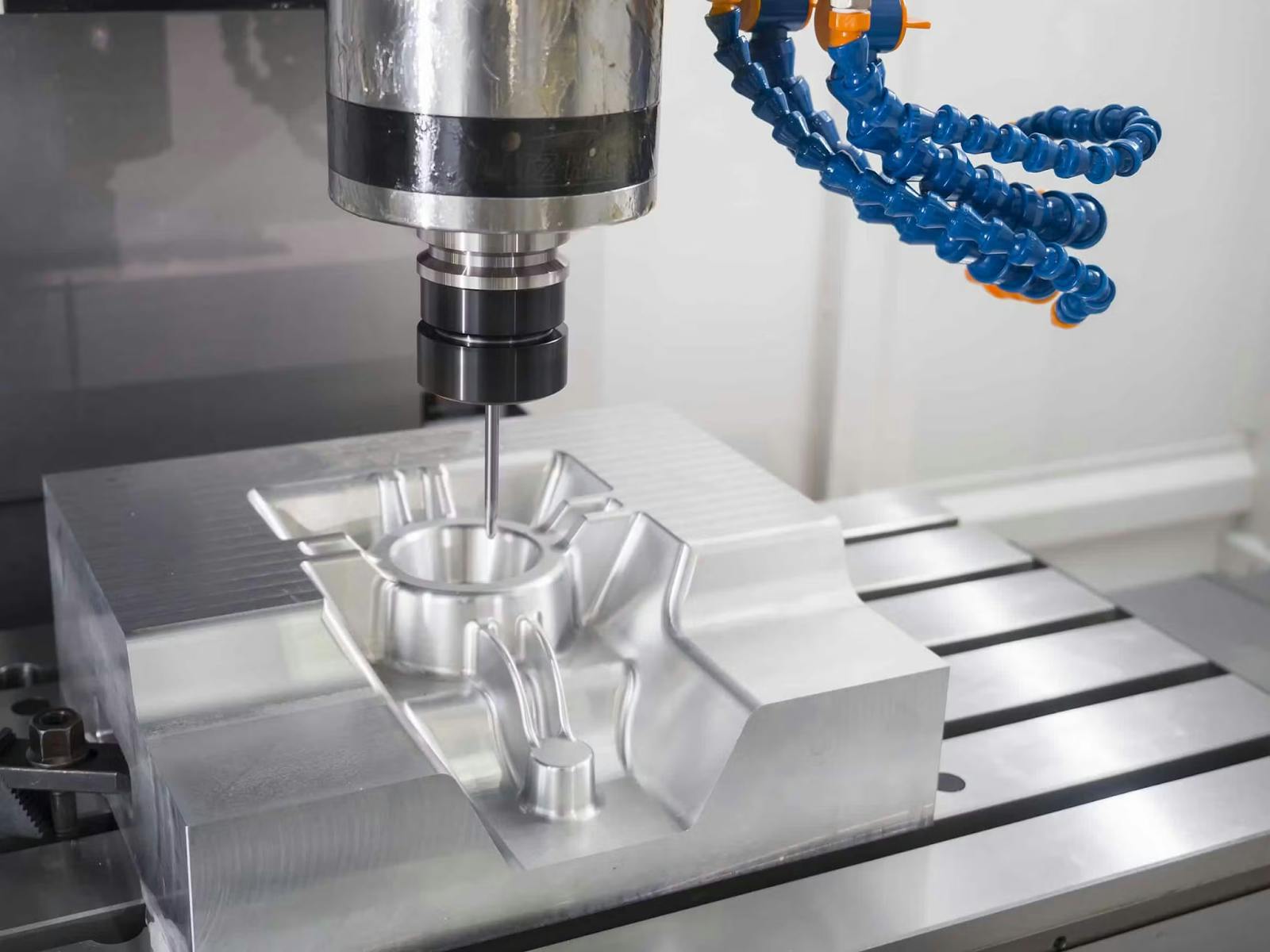The Role of CNC Machining Solutions in Modern Manufacturing and Engineering Solutions
CNC machining solutions have come to be essential in modern production and design. They give accuracy and effectiveness, making it possible for the development of complicated parts with marginal human oversight. This innovation not just minimizes production time and costs yet additionally attends to the boosting demands of numerous markets. As technology evolves, the landscape of CNC machining is readied to transform better - jig and fixture tooling. The effects of these advancements warrant closer exam
Recognizing CNC Machining: A Review
CNC machining, a foundation of modern production, involves the usage of computer-controlled tools to specifically cut and shape products. This technology incorporates advanced software program and machinery to automate the production process, making sure high accuracy and effectiveness. CNC, which stands for Computer Numerical Control, enables operators to input in-depth specifications that direct the device in executing complicated layouts.
Various materials, consisting of wood, plastic, and steel, can be machined, making CNC functional across different sectors. The procedure starts with a digital design, normally produced making use of CAD software, which is equated right into equipment language for execution.
CNC machining includes numerous techniques, such as milling, turning, and boring, each matched for details applications. The adoption of CNC innovation has actually transformed production abilities, allowing suppliers to generate intricate components with minimal human intervention. Because of this, it has ended up being an important element in markets varying from aerospace to auto.
Benefits of CNC Machining in Production
CNC machining offers significant advantages in manufacturing, specifically with regard to precision and accuracy, which enhances item top quality. In addition, it is cost-effective, enabling decreased production costs while maintaining high standards. Its versatility in handling various materials further emphasizes its worth in modern-day production processes.
Precision and Accuracy
In modern manufacturing, precision and accuracy are paramount, and advanced machining strategies play a crucial duty in accomplishing these goals. CNC machining solutions provide unrivaled consistency in production, permitting makers to produce complex get rid of exact specifications. By utilizing computer system numerical control, these machines remove human error, making certain that each element fulfills rigorous tolerances. The repeatability of CNC machining enables organizations to create huge quantities of the same products without compromising quality. Advanced software program utilized in CNC procedures allows for complex designs and quick modifications, improving adaptability in the manufacturing process. Inevitably, the precision and accuracy supplied by CNC machining considerably add to improved product integrity and efficiency, fostering innovation and meeting the ever-evolving demands of numerous industries.
Cost-Effectiveness
Cost-effectiveness sticks out as a significant advantage of CNC machining in the manufacturing field. By automating the machining process, business can minimize labor prices and minimize human error, which causes greater performance. CNC devices run continually and can generate components at a faster price than typical methods, ultimately reducing manufacturing expenses. In addition, the precision supplied by CNC machining lowers product waste, ensuring that resources are utilized efficiently. Because of this, organizations can achieve greater earnings margins while keeping top quality standards. The capability to create complicated designs with minimal arrangement time more boosts price effectiveness. Generally, CNC machining provides a compelling solution for manufacturers looking for to maximize their procedures and continue to be competitive in a demanding market.
Versatility in Products
Adaptability in materials is a hallmark of modern CNC machining, permitting suppliers to function with a broad variety important, including steels, plastics, timber, and composites. This capacity allows the production of varied parts tailored to specific application needs. Light weight aluminum and stainless steel can be machined for durable commercial components, while plastics are ideal for corrosion-resistant and lightweight applications. Wood machining satisfies the furniture and attractive markets, while compounds provide strength-to-weight benefits in aerospace and auto industries. The ability to change in between materials without substantial reconfiguration improves operations effectiveness and reduces preparations. Inevitably, this adaptability empowers producers to introduce and meet advancing market needs, strengthening CNC machining's function as a keystone of modern engineering remedies.
Key Industries Benefiting From CNC Machining Services
CNC machining services play an essential function in numerous key industries, especially aerospace and protection, in addition to auto component production. These industries depend on the accuracy and efficiency of CNC innovation to fulfill stringent high quality and security criteria. The capacity to produce complex components Get More Info with limited resistances placements CNC machining as a vital device in modern-day manufacturing.
Aerospace and Defense Applications
In the high-stakes domain of aerospace and precision, defense and integrity are extremely important, making CNC machining services important. These services allow the production of elaborate parts with exacting resistances, necessary for airplane, satellites, and army devices. CNC machining assists in the development of light-weight yet durable components, usually making use of innovative products such as titanium and carbon fiber. The capability to rapidly model and manufacture elements speeds up the development cycle, ensuring that critical systems are both reliable and reliable. Moreover, CNC innovation enhances repeatability, reducing the threat of human error and ensuring regular top quality throughout large manufacturing runs. As the aerospace and protection industries significantly take on automation, CNC machining services will remain to play a pivotal duty in meeting stringent operational needs and governing requirements.
Automotive Component Manufacturing
The automobile market, a lot like aerospace and protection, depends heavily on precision engineering to fulfill the demands of modern-day manufacturing. CNC machining solutions play an important role in creating high-quality vehicle components, such as engine parts, transmission housings, and customized installations. These services allow suppliers to achieve limited resistances and complicated geometries, necessary for enhancing car efficiency and safety. The capability to promptly adapt designs and create prototypes with CNC machining increases technology within the industry. Additionally, the scalability of CNC machining enables for both tiny set manufacturing and large-scale production, accommodating varied market needs. As independent and electric cars gain grip, the reliance on CNC machining is poised to grow, better solidifying its relevance in auto part manufacturing.
The CNC Machining Process: From Style to Production
Transforming an electronic style into a tangible item entails a collection of specific action in the CNC machining procedure. Engineers make use of computer-aided layout (CAD) software application to create a detailed digital design of the preferred component. This version is then exchanged a style compatible with CNC equipments, commonly with computer-aided manufacturing (CAMERA) software. The CNC equipment interprets this data to direct its procedures.
When the layout is prepared, the chosen product is protected in the CNC equipment. The machining process starts, including numerous techniques such as milling, transforming, and drilling, where devices eliminate material to form the component according to specs. Throughout manufacturing, the device continually readjusts and keeps track of for accuracy, guaranteeing the end product meets the style requirements.
After machining, parts go through ending up processes such as sanding or layer to enhance performance and visual appeals. This organized method assurances that high-quality elements are created successfully and properly.
Developments and Trends in CNC Machining Innovation
As innovations in technology remain to shape the manufacturing landscape, CNC machining is experiencing substantial technologies that enhance efficiency and precision. One popular pattern is the assimilation of expert system and equipment understanding, allowing adaptive machining procedures that optimize tool paths and decrease cycle times. Furthermore, the fostering of advanced products, such as composites and lightweight alloys, broadens the capacities of CNC devices, enabling for the manufacturing of complex geometries with higher strength-to-weight ratios.
Cloud computing and IoT (Web of Points) innovations facilitate real-time surveillance and information analysis, leading to predictive upkeep and lessening downtime. Automation with robotics is also becoming progressively widespread, simplifying workflows and boosting safety and security in production settings. Finally, the increase of 5-axis machining supplies unparalleled versatility and precision, making it possible for the creation of complex parts in a solitary setup. These innovations jointly position CNC machining at the leading edge of modern-day manufacturing solutions.

Future Outlook: The Advancing Function of CNC Machining in Design Solutions
CNC machining is poised to play an increasingly important role in design remedies as markets welcome advanced innovations and evolving market demands. As automation and smart manufacturing gain grip, CNC machining services are anticipated to integrate with Web of Points (IoT) devices and artificial knowledge (AI) to enhance accuracy and efficiency. This integration will certainly permit real-time monitoring and predictive maintenance, decreasing useful link downtime and improving manufacturing effectiveness.
Furthermore, the surge of customized manufacturing will certainly necessitate more flexible CNC systems with the ability of adapting to small batch manufacturing with fast turnaround times. Sustainability problems will certainly likewise drive developments in CNC machining, triggering the advancement of eco-friendly products and procedures.
Eventually, CNC machining will certainly continue to progress, addressing the complexities of contemporary design obstacles while offering cost-effective and scalable services that meet the varied demands of sectors varying from aerospace to health care.
Often Asked Concerns
What Materials Can CNC Machining Collaborate With?
CNC machining can collaborate with a variety of materials, read this including steels like light weight aluminum, steel, and titanium, in addition to plastics such as acrylic and nylon. In addition, wood and compounds are also suitable for CNC machining procedures.
Exactly how Do I Pick a CNC Machining Provider?
When selecting a CNC machining provider, one ought to consider their experience, tools quality, product capabilities, consumer evaluations, turnaround times, and rates. A thorough comparison guarantees the selected provider fulfills certain project needs successfully.
What Is the Typical Turn-around Time for CNC Machining Projects?
Regular turn-around times for CNC machining tasks differ, commonly ranging from a few days to several weeks, depending on task intricacy, material accessibility, and the company's workload. Timelines ought to be confirmed directly with the chosen copyright.
Are There Minimum Order Quantities for CNC Machining Solutions?

Exactly How Does CNC Machining Ensure Precision and Precision in Production?
CNC machining guarantees precision and accuracy through computer-controlled operations, which minimize human error. Advanced software application and high-grade machinery promote exact measurements, constant duplication, and elaborate designs, causing superior parts that meet rigorous specifications and resistances.
CNC machining, a keystone of modern-day manufacturing, entails the usage of computer-controlled devices to specifically reduce and shape products. CNC machining solutions supply exceptional uniformity in production, enabling suppliers to create complex components with specific specs. CNC machining services play a crucial function in numerous key industries, particularly aerospace and protection, as well as automobile element production. Furthermore, the scalability of CNC machining allows for both tiny set manufacturing and massive manufacturing, providing to varied market needs. As automation and smart manufacturing gain traction, CNC machining services are anticipated to incorporate with Net of Things (IoT) tools and man-made intelligence (AI) to boost precision and effectiveness.